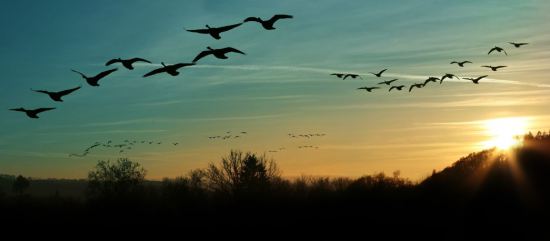Who is a Religious Naturalist?

What is the common understanding of being religious?
Most traditional religions have a core narrative (a mythos, a large story), usually recorded in texts or oral accounts. Interpretations of each account are embedded in the mythos and elaborated by clergy; spiritual responses to the account are elicited via art and ceremonies; and moral/ethical edicts are built into the fabric of the narrative. A person adopting a traditional religion elects to believe in the mythos and its embedded interpretive, spiritual, and moral/ethical parameters and usually participates in a community of fellow believers.
Who is a naturalist?
Scientific inquiry has provisioned us with a mind-boggling new core narrative — the epic of evolution, the epic of creation, the universe story, big history, everybody’s story — where humans and human cultures are understood to be emergent from and hence a part of Nature. Naturalists adopt this account as their core narrative, with full recognition that these understandings will certainly deepen and may shift with further scientific inquiry. They adopt the story currently on offer and do not simply select features of the story that support preferred theories of Nature.
Who is a religious naturalist?
A religious naturalist is a naturalist who has adopted the Epic as a core narrative and goes on to explore its religious potential, developing interpretive, spiritual, and moral/ethical responses to the story. Importantly, these responses are not front-loaded into the story as they are in the traditions. Therefore, the religious naturalist engages in a process, both individually and in the company of fellow explorers, to discover and experience them. These explorations are informed and guided by the mindful understandings inherent in our human traditions, including art, literature, philosophy, and the religions of the world.
What is meant by interpretive, spiritual, and moral?
The interpretive axis entails asking the Big Questions along philosophical/existential axes. How do our science-based understandings inform our experience of being a Self? What do they tell us about free will? Death? Love? The search for The Meaning of Life? Why there is anything at all rather than nothing?
The spiritual axis entails exploring inward religious responses to the Epic, including awe and wonder, gratitude, assent, commitment, humility, reverence, joy, and the astonishment of being alive at all.
The moral axis entails outward communal responses to the Epic, where our deepening understandings of the animal/primate antecedents of social sensibilities offer important resources for developing social justice and human cooperation.
It also entails an orientation that can be called ecomorality, seeking right relations between the earth and its creatures, absorbing our interrelatedness, interdependence, and responsibilities.
What is religious naturalism?
Religious naturalists seek to develop coherent and satisfying meta-versions of their interpretive, spiritual, and moral responses to the natural world. Some may go on to produce books, articles, blog postings, films, art, music and poetry that offer these syntheses for others to consider and learn from. A given synthesis can be called that person’s version of Religious Naturalism. (An analogy: there are many versions of Environmentalism on offer, each written by an environmentalist.) One such project is found at our sister website, religiousnaturalism.org; links to others are listed here.
Importantly, all are proposals. At this stage in the journey, our core text is Nature.
What about synonyms?
A number of persons and groups use terms other than religious naturalist/ism to describe similar orientations with particular emphases; links to these alternatives are offered here. It is our hope that the term religious naturalist can become the vanilla term for the orientation, with a rich array of additional flavors on offer.
What about God?
The concept of a God who actively alters the course of natural events is not a naturalist view; persons for whom this concept is important will presumably prefer another religious home. At the other pole, naturalists who find the concept of being religious to be an anathema will presumably be more at home in another type of organization, like one of those linked here. Most religious naturalists do not elect to use God language, but some use the word as a personification of reality, or to connote the unknown and perhaps unknowable substrate of order (e.g., “God as the Ground of Being”) or to connote a large and important concept within the natural world (e.g., “God is Love” or “God is Creativity”).

Wild Geese
by Mary Oliver
You do not have to be good.
You do not have to walk on your knees
for a hundred miles through the desert repenting.
You only have to let the soft animal of your body
love what it loves.
Tell me about despair, yours, and I will tell you mine.
Meanwhile the world goes on.
Meanwhile the sun and the clear pebbles of the rain
are moving across the landscapes,
over the prairies and the deep trees,
the mountains and the rivers.
Meanwhile the wild geese, high in the clean blue air,
are heading home again.
Whoever you are, no matter how lonely,
the world offers itself to your imagination,
calls to you like the wild geese, harsh and exciting
over and over announcing your place
in the family of things.
